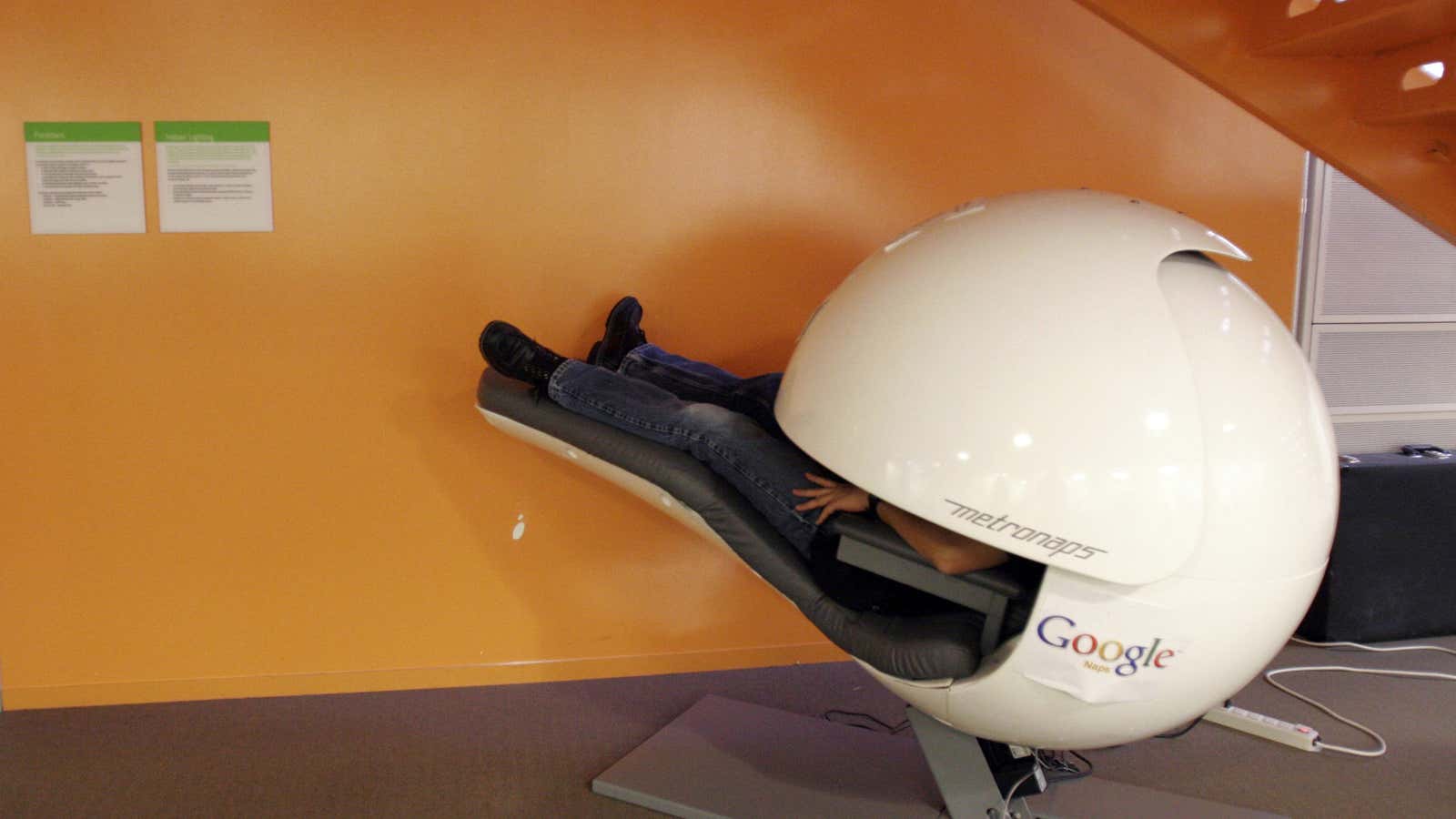Patrick Pichette has decided to follow his bliss, make time for what matters, and carpe diem the hell out of his life.
During and a few weeks after a swank trip to Africa, where he and his wife soaked in a sunrise at the summit of Mount Kilimanjaro, Google’s soon-to-be former chief financial officer had an epiphany. He needed more work-life balance. He says he’s put in “25-30 years of nearly non-stop work (depending on how you cut the data)…”
So, on March 10, at 4:50 p.m., he posted a letter to his Google+ account, natch, explaining his decision to leave the company. He has grown children and wants to spend more time with his wife of 25 years. The letter ends, “In the end, life is wonderful, but nonetheless a series of trade offs, especially between business/professional endeavours and family/community. And thankfully, I feel I’m at a point in my life where I no longer have to make such tough choices anymore. And for that I am truly grateful.” In 2014, Mohamed El-Erian, former head of global investment firm PIMCO, had a similar moment of enlightenment when he stepped down to spend more time with his tween daughter.
But while the privileged few can just ditch it all in the name of work-life balance, most people have to figure out how to manage their lives and connect with their families while working full-time hours or longer. Just 12% of US workers are entitled to paid leave, even for the care of a newborn or sick family member. Out of 185 countries reviewed in a 2014 report by International Labour Organization, only two–the United States and Papua New Guinea–did not have public policies for paid maternity leave. The report found that 78 countries reviewed also mandated paternity leave, with 70 of those providing paid leave to new fathers.
And then there are the expectations around working hours. A recent discussion on Quora entitled, “What is the worst part about working at Google?” included insight from both people who ‘fessed up to working there and those who preferred to remain anonymous. Despite its designation on more than one “best place to work” list, the tech giant has never had a great reputation for work/life balance (see Pichette’s letter). But some of the insights in the Quora discussion were eye-opening.
“I don’t know if Google inadvertently hires the work-a-holics or if they create work-a-holics in us. Regardless, I have seen way too many of the following: marriages fall apart, colleagues choosing work and projects over family, colleagues getting physically sick and ill because of stress, colleagues crying while at work because of the stress, colleagues shooting out emails at midnight, 1am, 2am, 3am. It is absolutely ridiculous and something needs to change,” wrote an anonymous contributor.
In that same online discussion, a former Google sales rep made the disclaimer that no one gets to complain about working at Google because we all make our own decisions. Then, he went on to say, “Well basically, you end up spending the majority of your life eating Google food, with Google coworkers, wearing Google gear, talking in Google acronyms, sending Google emails on Google phones, and you eventually start to lose sight of what it’s like to be independent of the big G, and every corner of your life is set up to reinforce the idea that you would be absolutely insane to want to be anywhere else. Period…You are given everything you could ever want, but it costs you the only things that actually matter in the end. Your time and your energy.”
So, while I appreciate the overall theme of Pichette’s letter–work to live, don’t live to work–it’s hard to get lost in the vivid imagery his flowery prose invokes. Should we feel a little “atta boy” as privileged executives pat themselves on the backs for leaving huge, equity-laden compensation packages to “grab our packs and hit the trails”? Maybe.
But, then I think about the wealth that enabled such a decision and how it was made–mostly on the backs of people who are expected to work the equivalent of two or more full-time jobs. Luxurious African sojourns are made possible by legions of people who work such long hours they need on-site amenities like food service, gyms, child care, and dry cleaning to be able to conduct life’s most basic functions under crushing workloads.
Let’s lose the perception that the answer to finding meaning and joy in our lives lies in ditching our day jobs and strapping on backpacks. Instead, let’s start with a top-down look at more realistic routes to work-life balance. Instead of leaving, executives like Pichette and El-Erian could make a remarkable difference in the lives of their employees if they stuck around and focused more attention on ensuring that the people who work so hard for them are supported by adequate leave, vacation and child-care policies and making “last one to leave for the day wins” values obsolete.




